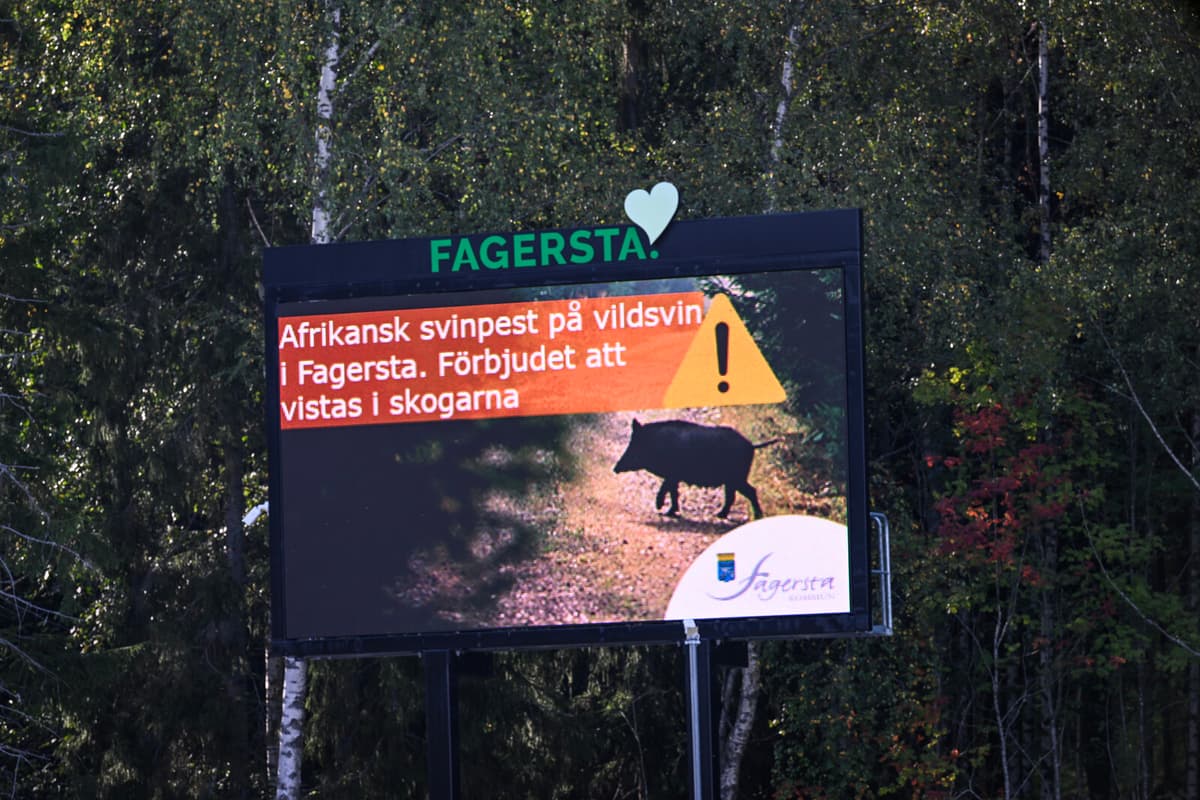In total, 333 cases of African swine fever were discovered in the EU's member states in 2024. In 2023, the corresponding figure was 1,929, according to the European Food Safety Authority, ESFA.
The decrease is mainly due to fewer cases being reported from Romania and Croatia. Despite this, Romania accounted for 66 percent of the cases in 2024.
No new countries reported disease cases during the year. This means that the EU is seeing a decrease in the number of affected member states for the first time.
In September, Sweden was declared free from African swine fever, just over a year after the outbreak in Västmanland in the autumn of 2023. 70 wild boars were infected in Sweden and 116 were put down for disease control reasons, according to the Board of Agriculture.
The number of disease cases among wild boars in the EU has been roughly the same since 2022. According to ESFA, Poland reported around 30 percent of the total number of cases in 2024.
African swine fever is a contagious viral disease that affects wild boars and pigs with severe illness and often fatal outcome. It cannot be treated and no vaccine exists.
The disease does not affect humans.
In the autumn of 2023, Sweden had its first outbreak of African swine fever. Infected wild boars were found in Fagersta and Norberg municipalities in Västmanland.
Sweden was officially declared free from the disease in September 2024.
Source: The National Veterinary Institute (SVA) and the Board of Agriculture.






